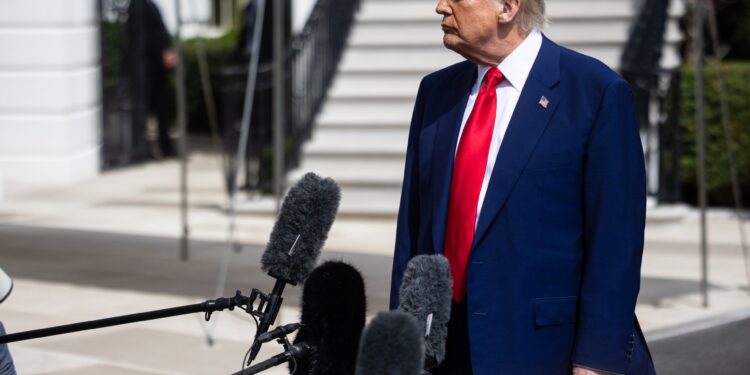The customs duties imposed by US President Donald Trump on the imports of his country from dozens of countries have sparked a wave of extensive criticism in the global economic circles, as a number of the most prominent experts considered it an indication of the failure of economic policies, warning of its catastrophic repercussions on global growth, especially in emerging and less developed countries.
“Rigania’s failure”
French economist Toma Picetti, author of the book “The Capital in the 21st Century”, said that what he described as “trambia” is a direct reaction to the failure of regoric policies, in reference to the liberal approach adopted by the late US President Ronald Reagan during the 1980s.
In a statement to the French Press Agency, Picetti explained that “Republicans in the United States are aware that economic liberation and globalization did not benefit the middle class as they were hoping,” adding that “the reaction is now in dealing with the rest of the world as a scapegoat, but this approach will not succeed.”
He stressed that the “Trump Economic Mix” will lead to more inflation and the exacerbation of social differences, calling on Europe to develop a huge investment plan in energy, transport, education, research, and health in preparation for a possible global economic stagnation.
“Malignant stupidity”
In addition, US economist Paul Crowagman, Nobel Economy Prize, described Trump’s commercial policy as “malicious stupidity”, noting that “it was the United States that established the modern commercial system, which allowed reducing customs tariffs for decades.”
In a post published before the start of the application of new customs duties on all imports to America, Crowgman wrote that “Trump burned all of this”, stressing that his decisions “do not carry real economic goals, but rather reflect a review of dominance designed to cause shock and amazement among others”, and he asked: “How can it be trusted by a administration that behaves in this way?”.
“Failed policies”
The prominent Chinese economist Lee Dawokoy said that Trump’s definitions are mainly aimed at forcing other countries to make concessions, describing these policies as a “review of economic failure,” according to the French Press Agency.
He added that “the American government and economics will incur heavy losses,” noting that Beijing has prepared counter -measures and increased its support for local consumption.
He also considered that this policy may represent the end of the American leadership of globalization, while China gives an opportunity to conclude new free trade agreements, and to play a central role in establishing an alternative trade system for the World Trade Organization.
He stressed that “China has the necessary foundations for leading the next stage of globalization.”
“A crisis for the poor and youngsters”
Nasser Al -Saidi, the former Lebanese Minister of Economy, warned that the least developed and emerging countries will pay the largest price for the repercussions of American fees, noting that the definitions will be a “seismic shock to the global trade scene,” according to the agency.
Al -Saeedi said that countries like Egypt, Lebanon and Jordan will face turmoil in their commercial relations, in addition to an expected decrease in foreign investment, stressing that these measures “will be confused by supply chains globally, and practically ending the stage of globalization”, and this will force the countries of the Middle East to strengthen their commercial relations with Asian partners.
“Protective Weapon”
In Africa, the economist and former Togolese minister Kako Nobukbo said that “protectionism is the weapon of the weak,” considering that Trump realized the weak position of the United States against China in the global competition.
Nobukbo warned that African countries are already facing structural and political crises, adding that “the new definitions will increase the pressure on the economies of the continent,” but in return he called for “strengthening national and regional value chains to reduce dependence on abroad.”
“The losses affect adults first”
Bismark Ryani, CEO of Financial Derifatifes in Nigeria, said that the major countries will be the most affected by any global recession caused by the trade war, adding that “the small countries suffer mainly, so the additional impact will be less severe compared to the major countries that depend on trade and international investment movement.”



